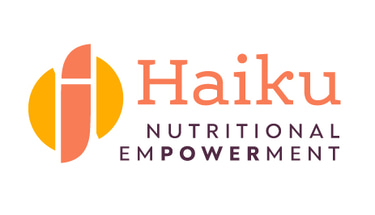Good Numbers, Hard Days
How to Tell Your Doctor You Need More Support
Kelly Robers, RDN, CDCES
10/9/20253 min read


You know that moment in a doctor's appointment when everything looks great on paper, but deep down you're thinking, "I'm still struggling"? Maybe your A1C is right where it should be, but it took every ounce of effort to get there. Maybe you're exhausted from constant meal planning, carb counting, or trying to stay on top of changing blood sugars. If this sounds familiar, you're not alone — and it's absolutely okay to ask for more support.
Your Numbers Don't Tell the Whole Story
Doctors rely on labs like A1C, blood pressure, and cholesterol to gauge how things are going. Those numbers are important — but they don't show how you are doing.
They don't show the frustration of "doing everything right" and still getting random highs. They don't show the stress of planning every meal or the worry that hits when your CGM alarm goes off for the third time that night. And they definitely don't show how much mental space diabetes can take up every single day.
That's why it's so important to speak up — because you deserve care that looks beyond the chart.
How to Bring It Up
Telling your doctor you're struggling doesn't have to feel uncomfortable. You're not complaining — you're advocating for yourself. Here are a few ways to start the conversation:
"My A1C looks okay, but it's been really hard to keep it there."
"I'm doing my best, but lately I've been feeling burned out. Are there extra resources that could help?"
"I'd love some extra support between visits — maybe a diabetes educator or program?"
Honest statements like these help your doctor understand what's really going on and connect you with additional resources, like diabetes education, nutrition support, or counseling.
When to Ask for More Support
If you notice any of these signs, it's time to speak up:
You feel anxious or frustrated about food or numbers.
You're unsure about the timing of your medication or insulin doses.
You've had frequent highs or lows and can't pinpoint why.
You're skipping activities or meals out of fear of glucose swings.
You're feeling unmotivated or isolated.
Even with a "good" A1C, diabetes distress is real — and it matters. Sharing that with your care team helps them provide you with better care.
Your Doctor Isn't a Mind Reader
Doctors want to help, but if everything looks "fine" on your chart, they may not realize you're struggling. That's why explaining how you're managing matters. For example:
Are you skipping meals to avoid highs?
Are you waking up at night due to low blood sugar levels?
Do you feel burned out trying to juggle everything?
Those details tell the story your numbers can't.
Building Your Support Team
Your doctor is just one piece of your care puzzle. Diabetes educators, dietitians, and peer support groups can offer personalized guidance, encouragement, and tools to make daily life easier.
If you're ready to build that kind of support system, Haiku Nutritional Empowerment's online diabetes education program is here to help. You'll find bite-sized lessons, a supportive community, and expert guidance to help make diabetes more manageable — one step at a time.
Checklist:
Before your next visit, take five minutes to jot down:
✅ 1. What's been hardest lately (meal planning, motivation, medications, etc)
✅ 2. Questions you want answered (no question is too small!)
✅ 3. Patterns you've noticed (highs/lows, fatigue, stress triggers)
✅ 4. What kind of support would you like (education, mental health, accountability, etc)
✅ 5. One thing that is going well — because progress deserves credit too!
Bringing this list to your appointment helps you make the most of your time — and ensures your care plan fits you, not just your numbers.
Support
Comprehensive diabetes education and resources.
Contact
Connect
krobers@haikunutrition.net
(602)456-0146
© 2025. All rights reserved.
